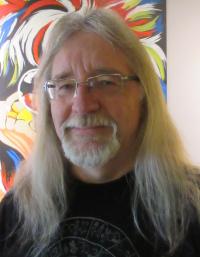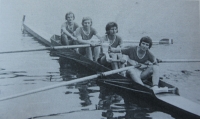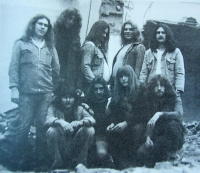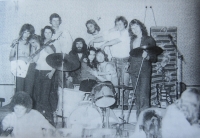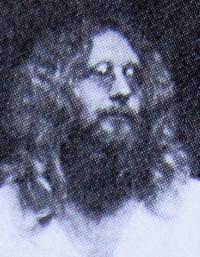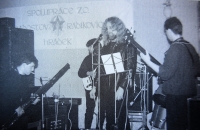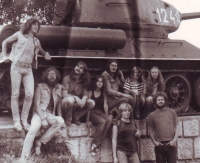Underground is still alive
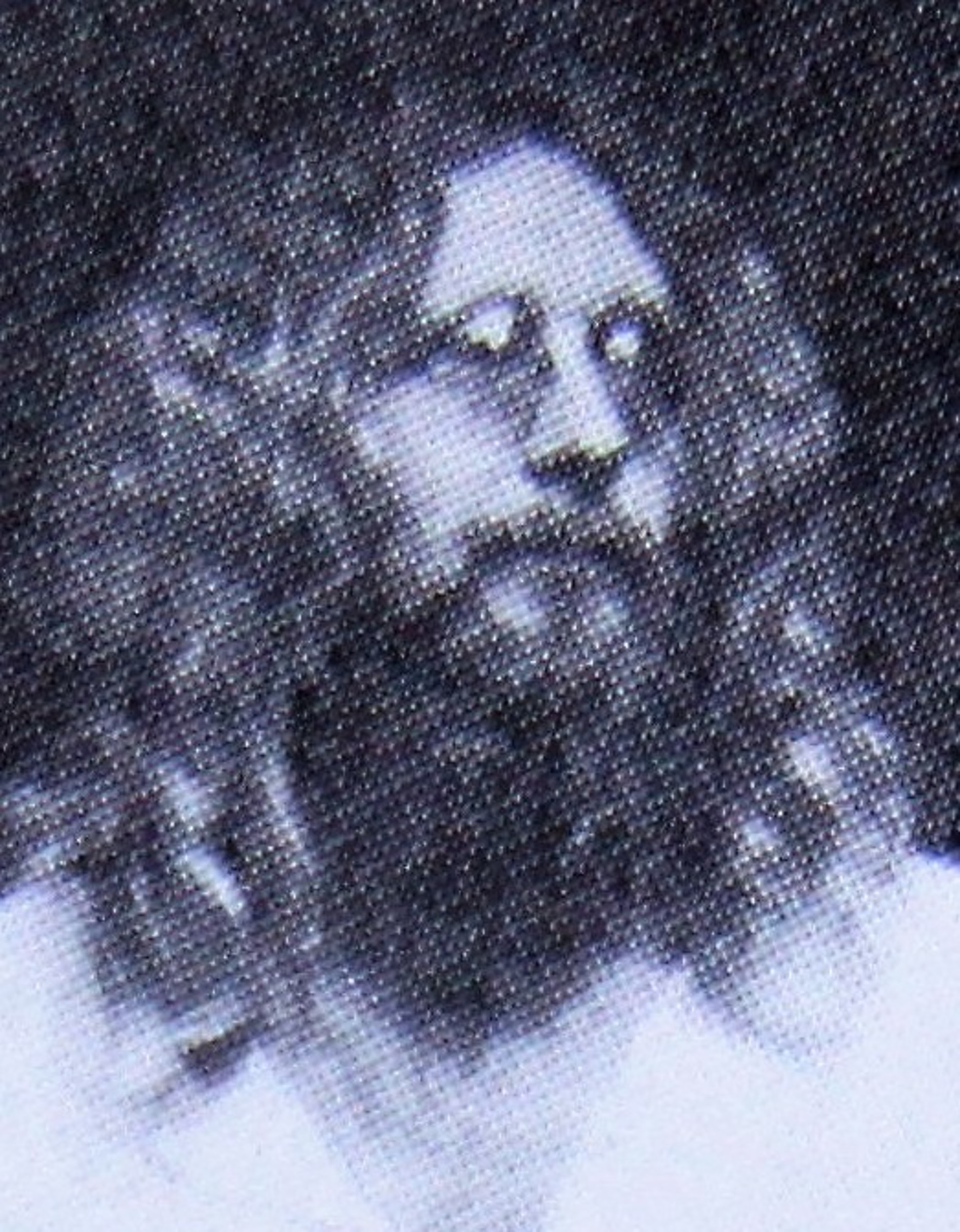
Stáhnout obrázek
Lumír Sokol was born on the 9th of December 1959 in Pardubice. His father and namesake Lumír (Lubomír) Sokol signed Charter 77 and arranged an access to samizdat literature for his son. The witness faced problems connected with long hair already at elementary school and after his return from military service he got involved in activities of underground in Pardubice for good. He started a band Oscar Band (1985) and organized concerts of so called second wave of underground. He faced several interrogations by State Security because of his approaches and organizational activities. He worked in a printing company since 1986 and he secretly copied samizdat literature there. He was in touch with leading representatives of underground and dissidents, he visited Václav Havel in his cottage in Hrádeček. He was prosecuted because of an incident with State Security officers during a concert in Rosice in 1987 and he got a suspended sentence. He participated in origin of Civic Forum in Pardubice during November 1989 and he was one of the founders of Pardubice Independent agency (PANAG) and he founded Radio Panag rock radio, he also founded and run Žlutý pes rock club (1992) and Ponorka club (1999). He got a Commemorative badge of a participant in anti-communist opposition and resistance in 2017. Lumír Sokol died on 24 March 2021.
